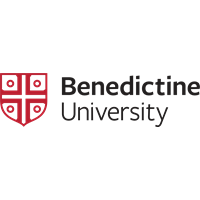Below is a summary of the abstract you submitted. Presenting author(s) is shown in bold.
If any changes need to be made, you can modify the abstract or change the authors.
You can also download a .docx version of this abstract.
If there are any problems, please email Dan at dar78@pitt.edu and he'll take care of them!
This abstract was last modified on March 18, 2024 at 2:17 p.m..

Bacteriophages (phages) are viruses that specifically infect bacteria. Their host specificity provides an ideal field of study for infection treatments. Phages can infect bacteria via cell lysis (lytic cycle) or through integration (lysogenic cycle). In this work, we focused on phages that infect bacteria belonging to the genus Microbacterium sp. Microbacterium species can be found in a variety of environments including soil, water, and even human samples. This project describes the phage isolation and characterization process using the soil microorganism Microbacterium foliorum as the host. We hypothesized that soil sites with yearly turnover would yield at least one M. foliorum phage. This work compared two soil sites at Benedictine University and two private gardens found elsewhere. We were able to isolate one phage per site, named Feta, Fanta, Bentz, and Cherry Cola. The phages have large plaque diameters (1 – 2 mm) with clear centers indicating the potential to use the lytic cycle. All phages were able to infect between 22 – 37°C although they prefer cooler temperatures. Phage lysates were prepared for structural imaging and genome analysis. Most phages belong to the Siphoviridae family with short capsids and long tails. Through literature and SEA-PHAGES references, we selected restriction enzyme sites to perform DNA fingerprints and predict their genome size. In the future, we would like to study the phages’ host range capabilities using other species available through the SEA-PHAGES program.
Acknowledgement: Dr. Tagide deCarvalho, University of Maryland, Baltimore County (UMBC) for TEM images. Benedictine University undergraduate research. Preliminary work done by student Bisma Khan. SEA-PHAGES; (Science Education Alliance-Phage Hunters Advancing Genomics and Evolutionary Science)
